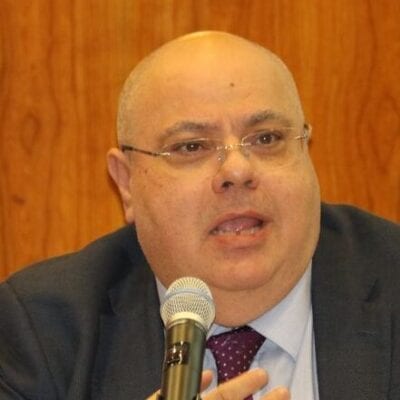Yaser Murtaja was a Palestinian photojournalist who had gone to the Gaza fence with Israel to cover the second Friday of the Great Return March. He was killed by an IDF sniper on 7 April. There was modest coverage of his death coming on the second Friday of the Great Return March. The world was troubled by the deliberate targeting by highly trained Israeli snipers of Palestinian civilians who posed no threat, but Western governments were hesitant about criticising Israel for targeting men, women, children, medics and journalists. The young medic, Razan Al-Najjar was shot and killed weeks later while tending to the wounded at the Gaza fence. At the same time, Nikki Haley was plotting to scupper a UN Security Council resolution to protect Palestinian civilians.
In its most recent atrocity, Israel targeted and killed three children in Gaza. They identified as Khaled Bassam Mahmoud Abu Saeed, 14; Abdul Hameed Mohammed Abdul Aziz Abu Zaher, 13; and Mohammed Ibrahim Abdullah Al-Sutari, 13.
I did not know Yasir, Razan, Khaled, Abdul Hameed or Mohammed. However, their loss and the grief I felt when they died lives with me to this day. Why has the world not sanctioned Israel for killing them? Why does it get a pass when it violates basic human rights while other states are held to account?
OPINION: Israel’s war on photographers and their images
Reaction to their killings is in sharp contrast to the disappearance and then confirmed killing of Saudi journalist Jamal Khashoggi on 2 October, which has captured the world’s imagination. I have not met a single person who has not been aware of the story or who has not followed with absolute horror the sordid details emerging from sources in the Turkish government about his murder and the possible mutilation of his body. Calls for sanctions on Saudi Arabia have been widespread, ranging from ordinary citizens to governments.
I was fortunate to meet Jamal and to chair a session at Middle East Monitor’s conference on the Oslo Accords the Saturday before his return to Istanbul to complete some paperwork at the Saudi Consulate to enable him to marry his fiancee Hatice Cengiz. Never did I or any of us present imagine how events would unfold hours later.

Saudi journalist Jamal Khashoggi (R) at the Oslo25 Conference in London, on 29 September, 2018 [Jehan Alfarra/Middle East Monitor]
Khashoggi’s murder pitted two major Muslim states – Saudi Arabia and Turkey – against each other. The murder was not carried out on the streets of Istanbul but inside a diplomatic mission. There were leaks and denials. There were different versions of what happened put out by Saudi Arabia which were at best inconsistent but which turned out to be lies. There was the theatre of Turkey’s President Erdogan’s widely advertised speech, which promised much detail but ended up a masterpiece of political prudence devoid of new information. The fate of the Saudi Crown Prince and even the Saudi monarchy as we know it hangs in the balance.
To this day, Khashoggi’s body has not been recovered. Questions remain unanswered about who ordered the murder, how it was conducted, what has happened to the body and what actual evidence Turkey holds, leaving much room for speculation. Was Turkey eavesdropping on the Saudi Consulate and therefore was the actual murder recorded on audio or video?
READ: Details of the 11-minute audio recording of the torture and death of Khashoggi
Those are some of the reasons why Jamal’s murder has tantalised the world for the past couple of weeks and will do so as more details are leaked or if Turkey finally decides to make public its evidence, which may include identifying who in the Saudi hierarchy was the most senior person that ordered Khashoggi’s killing.
Western countries have started imposing sanctions on individuals suspected of being part of the murder squad, effectively cancelling visas they may hold, and calls for imposing an arms embargo on Saudi Arabia have been made, especially in Europe. While these have been balanced against the strategic importance of trade with Saudi Arabia, it is at least an indication that Western countries can act to pressure other states accused of committing crimes.
The world moved to impose sanctions on Russia and Iran, while history shows other countries faced sanctions, including Iraq and Libya.
However, it seems that the world is reluctant to sanction Israel whatever it does. In fact, many western countries justify its crimes as a necessary means of “self-defence”. There is no talk of imposing a two-way arms embargo on Israel. The Americans have not considered an end to the $3 billion annual military aid for killing Razan or Yaser. This would be moral, but also a saving for the American taxpayer who does not choose for the American Administration to fund a self-declared Apartheid state with half its overseas aid budget.The world is right to be outraged by journalist Jamal Khashoggi’s killing and the manner in which it was carried out. It is right to ask for the truth and then for sanctions to be imposed on those responsible for his horrible murder. However, its hypocrisy in only mildly criticising Israel for killing Palestinian journalists provides it with the impunity it has enjoyed and continues to enjoy. The life of a Palestinian, Saudi or Israeli journalist should be worth the same.
The world’s firmness in dealing with Jamal’s killers may well dissuade other states from committing crimes against journalists, except possibly Israel. No country should be able to act above the law, including Israel.
The views expressed in this article belong to the author and do not necessarily reflect the editorial policy of Middle East Monitor.

![Members of Reporters Without Borders Organization stage a protest demanding justice for murdered Saudi Arabian journalist Jamal Khashoggi outside the Embassy of Saudi Arabia in Berlin, Germany on 1 October 2019 [Abdülhamid Hoşbaş - Anadolu Agency]](https://i0.wp.com/www.middleeastmonitor.com/wp-content/uploads/2019/10/20191001_2_38500540_48070541-1.jpg?fit=920%2C613&ssl=1)

![Palestinian Journalists Arrested by Israel - Cartoon [Sarwar Ahmed/MiddleEastMonitor]](https://i0.wp.com/www.middleeastmonitor.com/wp-content/uploads/2017/10/20160504_SA-Palestinian-Journos-Arrested-by-Israel.png?resize=333%2C333&ssl=1)






